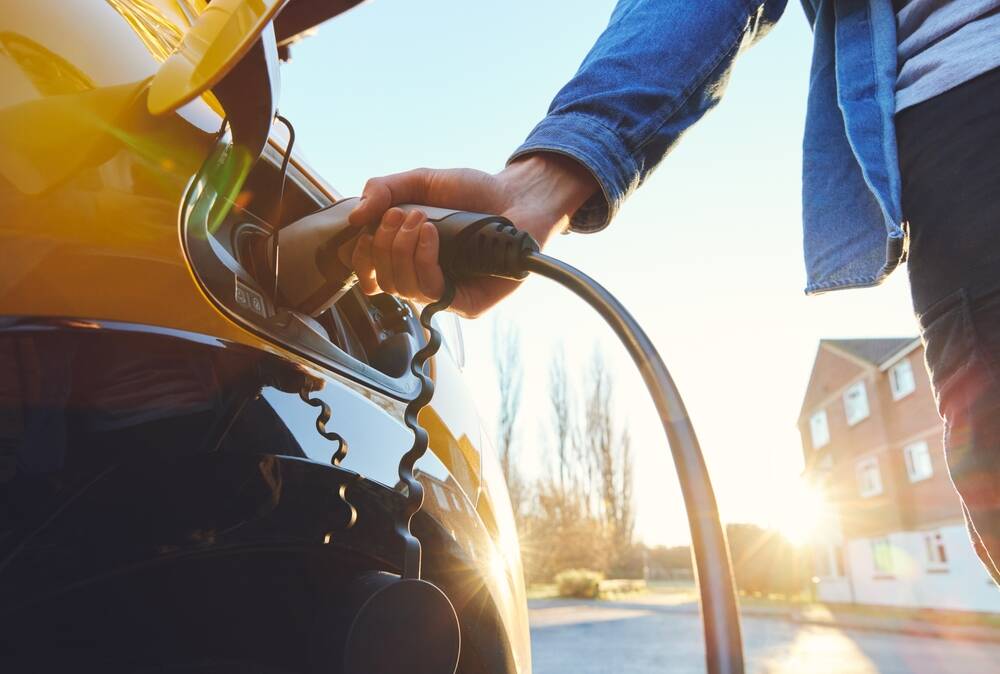Biden: I Want Standard EV Chargers Made In America By 2024 – Get On It

The Biden-Harris Administration announced rules on Wednesday requiring the American automotive industry to build interoperable electric vehicle chargers that must be manufactured within the country – using US-sourced materials – by 2024.
The policy is part of President Biden's goal to create a network of 500,000 chargers along the nation's highways to encourage automakers and consumers to adopt EVs. The US government is hoping that at least 50 per cent of new car sales will be EVs by 2030.
"These steps will help the United States meet president Biden's ambitious goals to confront the climate crisis," the administration declared in a statement. "The path to net-zero emissions by 2050 is creating good-paying manufacturing and installation jobs on the way."
Under Biden's Bipartisan Infrastructure Law, tens of billions of dollars have been set aside to support zero-emission transportation – including the development of EV chargers and the sourcing of materials and components for electric batteries.
Several agencies have launched funding schemes and grants to help spur businesses into adopting the changes. The Department of Energy, for example, pledged to invest $7.4 million into seven EV charging projects across 23 states. The Federal Highway Administration (FHWA) will give more than $2.5 billion over five years to local authorities looking to install EV chargers in public spaces like schools, grocery stores, parks, and libraries.
Meanwhile, the Department of Transportation also announced the National Electric Vehicle Infrastructure (NEVI) program – a $5 billion initiative to create a network of EV charging stations to support long distance road trips. Automakers looking to receive federal funding need to adhere to the new rules, which state they must build chargers with the standard Combined Charging System connectors that work at least 97 per cent of the time. Charging stations must use a single app to identify drivers and support standard payment options.
- Hyundai and Kia issue software upgrades to thwart killer TikTok car theft hack
- Used EV car batteries find new life storing solar power in California
- Beijing grants permit to 'flying car' that can handle 'roads and low altitude'
- Plugging end-of-life EV batteries into the grid could ease renewables transition
Companies that have built proprietary EV chargers for their own vehicles, such as Tesla, will be forced to adapt. Elon Musk's carmaker has said it will open up its US Supercharger and Destination Charger network to non-Tesla EVs, with at least 7,500 chargers to be available by the end of 2024. Other players in the market – like Hertz, bp, General Motors and Mercedes Benz – also pledged to build more standardized EV chargers in light of the policies.
The FHWA said the steel and iron used to make EV chargers must be manufactured in the US. Starting from July 1 2024, at least 55 per cent of the hardware in the products must be sourced within the country. EV chargers that fail to meet this requirement cannot be installed any later than October 1 2024.
"Today's announcement is a tool to promote domestic production. The Build America, Buy America requirements for EV charging equipment will help revitalize our manufacturing base," the administration concluded. ®
From Chip War To Cloud War: The Next Frontier In Global Tech Competition
The global chip war, characterized by intense competition among nations and corporations for supremacy in semiconductor ... Read more
The High Stakes Of Tech Regulation: Security Risks And Market Dynamics
The influence of tech giants in the global economy continues to grow, raising crucial questions about how to balance sec... Read more
The Tyranny Of Instagram Interiors: Why It's Time To Break Free From Algorithm-Driven Aesthetics
Instagram has become a dominant force in shaping interior design trends, offering a seemingly endless stream of inspirat... Read more
The Data Crunch In AI: Strategies For Sustainability
Exploring solutions to the imminent exhaustion of internet data for AI training.As the artificial intelligence (AI) indu... Read more
Google Abandons Four-Year Effort To Remove Cookies From Chrome Browser
After four years of dedicated effort, Google has decided to abandon its plan to remove third-party cookies from its Chro... Read more
LinkedIn Embraces AI And Gamification To Drive User Engagement And Revenue
In an effort to tackle slowing revenue growth and enhance user engagement, LinkedIn is turning to artificial intelligenc... Read more

